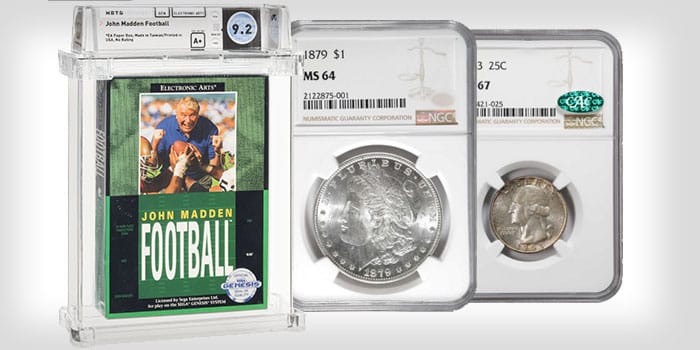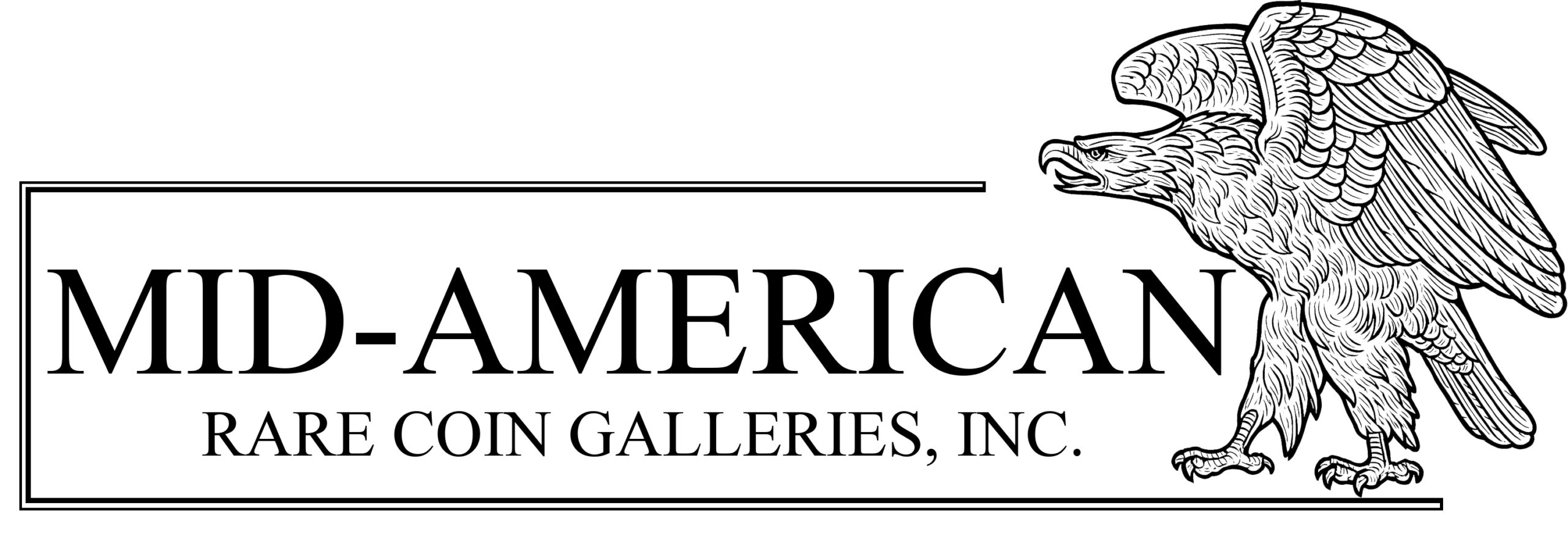About two weeks ago, Heritage Auctions sold an unopened example of a John Madden Football Electronic Arts video game for $480,000 – a stunning price for a video game that was produced by the millions. I’m pretty sure my son had a copy at one time. But his, like 99.999% of the others, was opened immediately and saw extensive use. Plus, the game was discarded when the next edition came out.
My knowledge of 1980s video games is limited, but the amazing part of this story is the staggering plunge in value for examples of this game that have been opened and gently used. A quick search on eBay found listings in the range of $200-$300.
A Lesson for Coin Collectors
Luckily, rare coins do not follow the exact same pattern of diminished value, but there are some similarities. Morgan Dollars are one of the most collected series of United States coinage. There are several dates that literally crash in value from MS 65 to circulated condition.

One example is the 1901 Philadelphia issue, of which there are very few Gem coins known. The last NGC MS 65 coin sold at auction in 2012 for about $150,000. You can purchase a Very Good example of the date for under $50. There are several other date-and-mintmark combinations of Morgan Dollars that follow this same pattern: 1880-O, 1883-S, 1884-S, 1893-O, 1894-O, 1895-O, 1896-O, and 1897-O, to name just a few.
One of the most frequently dispensed pieces of numismatic advice is, “Buy the best you can afford.” I have often given this same advice to anyone new to collecting rare coins. History has shown that over time, the highest-quality coins have performed best in terms of price appreciation. This has been especially true in recent years with the insatiable demand for coins as part of set-registry programs.
The supply-and-demand factor comes into play as more collectors enter the market searching for the small pool of high-quality rare coins. Anyone who cares about coins as an investment should remember the fact that common coins will always be common, and the supply will eventually satisfy demand.
The question becomes deciding what grade range you want to collect for the series you have chosen. Some collectors make the decision on what to collect based on being able to afford nice examples of the series that interest them. Starting a set of MS 65 Red Lincoln Cents would be challenging, even for those with a robust budget.
Lincoln Cents are a perfect example for those trying to decide what condition to collect. For these and many other series, you might call this “playing the spread.” Assembling a complete set of MS 65 Red Lincoln Cents would cost well over a quarter-million dollars and take years to accomplish. The 1926-S alone is over $100,000 if you can find one. A much easier and doable goal would be to acquire a set in MS 63 Red Brown. In this condition, the 1926-S can be purchased for under $1,000. The complete set in MS 63 Red Brown would set you back around $10,000 and be achievable.
My good friend and mentor, Q. David Bowers, has probably sold as many Morgan and Peace Silver Dollars over the course of his career as anyone. This is especially true for better date and rare issues. For years, he would espouse the wisdom of buying the “spread coins” for each series. Those are the ones that skyrocket from one grade to the next. Why pay $25,000 for an MS 65 1925-S Peace Dollar when an MS 64 is only $500, and you can barely tell the difference. Besides, adhering to the conventional wisdom of buying the best you can afford, it just makes common sense, which Dave was famous for pointing out over the years in his weekly Coin World columns. Dave recently retired from this responsibility and his sage words of wisdom will be missed.
Before You Start Collecting
When you start your next numismatic mission, carefully consider the costs for the various grades of the series you have chosen. You may also do research on grading service population numbers to gauge availability. If there are just a few examples graded for the coin you might eventually need, it could take years or decades for one to appear for sale. When that happens, fireworks often ensue. Collecting coins is fun and exciting, but with a little research, you can be better prepared for the journey you have chosen.
Circling back to the Madden game that sold for $480,000, the one nuance of collecting vintage video games is the total emphasis on the quality of the outside plastic wrapping. This would be like demanding perfect packaging that had not been opened for your 1995-W Proof Silver and Gold Eagle set to be worth more than melt value. It seems like “playing the spread” on vintage video games would be much more difficult.
I’m sure you are like everyone else, wishing they could find one of these lost in the back of a closet. It just better have not been opened!
